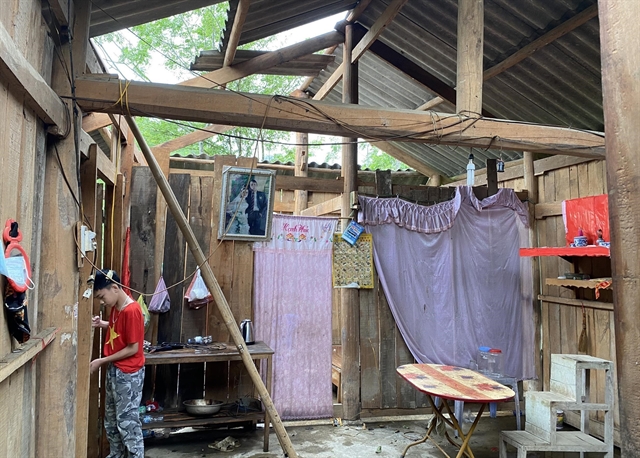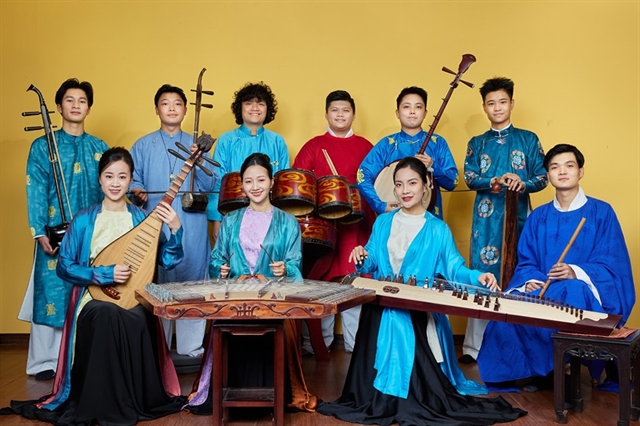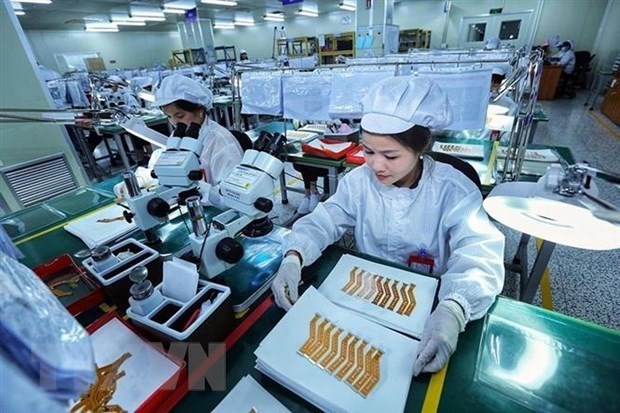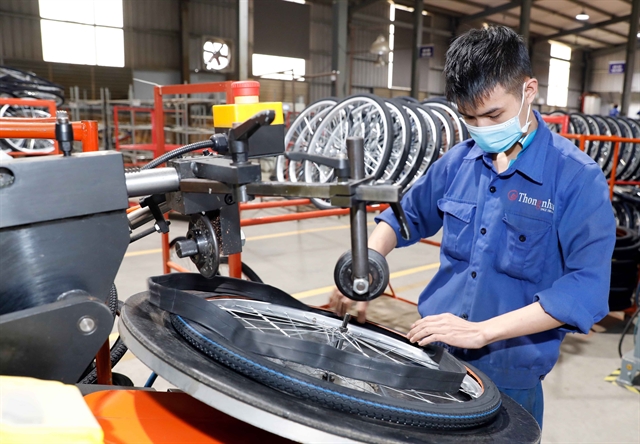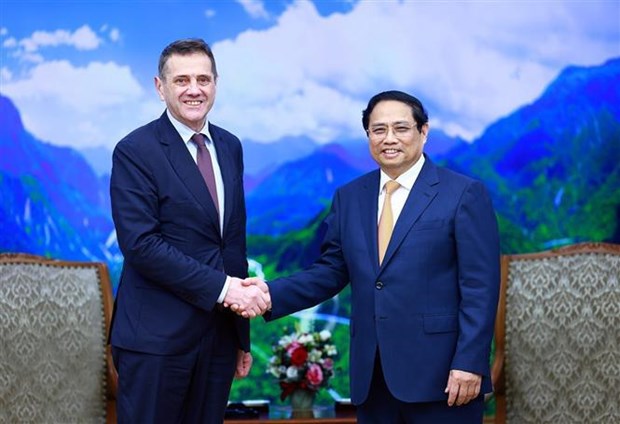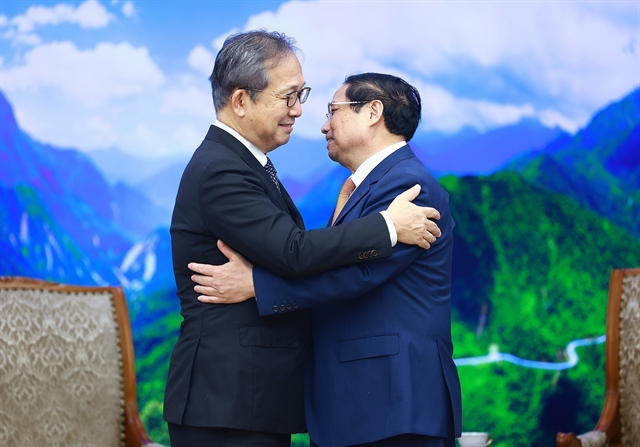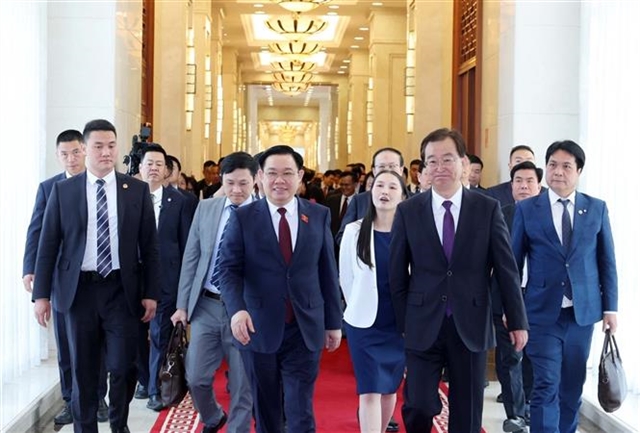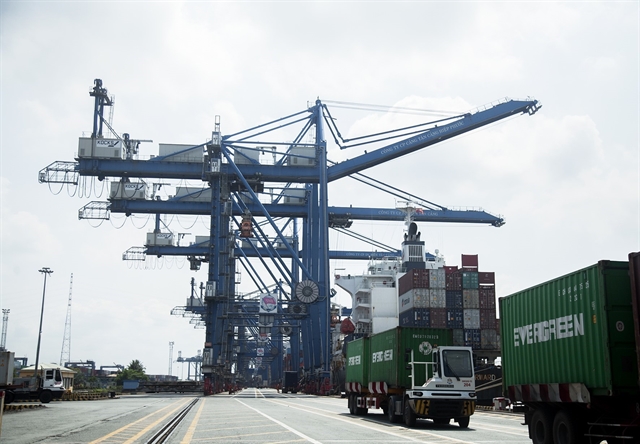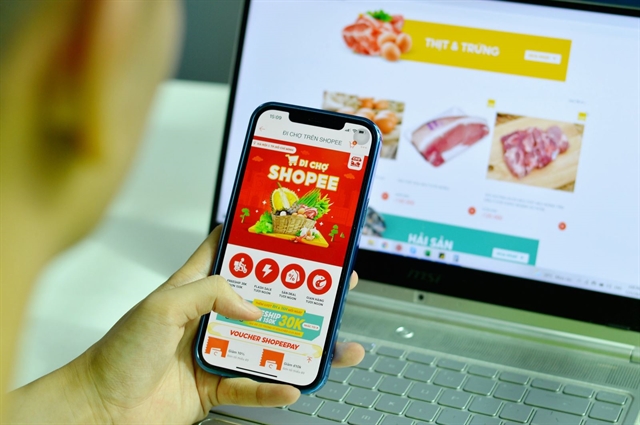 Economy
Economy

The amount of resources currently exploited is four times more than it was half a century ago, according to the 2019 report of the United Nations Environment Programme (UNEP).
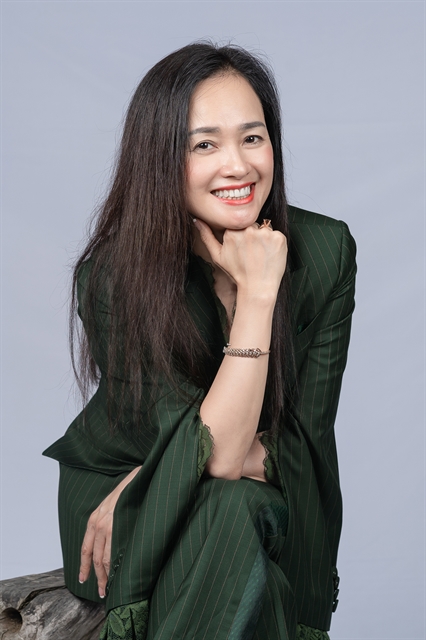
|
| Nguyễn Thị Trà My, CEO of The PAN Group |
HÀ NỘI — The amount of resources currently exploited is four times more than it was half a century ago, according to the 2019 report of the United Nations Environment Programme (UNEP).
The bad news is that the amount of natural resources used is still increasing rapidly. The Global Footprint Network estimates that humans are currently using 60 per cent more resources than what the Earth can renew. Today, humanity uses the equivalent of 1.6 Earths to provide the resources we use and we are on track to need the resources of two Earths by 2050. If we don't change this pattern, we will face resource depletion, even for regenerative resources.
Since 2015, Việt Nam has become a major importer of coal. We also need to import a lot of other fuel materials for production such as crude oils, steels, metals and plastics. The World Bank estimates that air pollution causes Vietnam to lose 5 per cent of GDP each year. Water pollution is expected to cause a loss of up to 3.5 per cent of GDP while land pollution and degradation also have a major impact on agricultural production. According to the Ministry of Natural Resources and Environment, Việt Nam is placed 4th in the world in terms of plastic waste despite only placing 68th in total era and 15th in population.
To combat these problems, many countries have transitioned to the circular economy to cope with both the exhaustion of natural resources and environmental pollution due to development. The circular economy concept was introduced in the 1960s. To explain it briefly, the circular economy creates a closed-loop system aiming at eliminating waste and the continual use of resources to reduce the negative impact of production on the environment, the ecosystem and our daily life.
The circular economy is currently a trend in many countries in the world including the European Union (with the Netherlands, Germany and Denmark as the pioneers), North America (Canada and the US) and Asia (China, Japan, South Korea and Singapore).
Having the opportunity to work for Biomin, a multinational agricultural company for 20 years, I know that the circular economy is no stranger to foreign companies as they are long ahead of us. Since the beginning of the 1990s, they have brought this model to Việt Nam and applied in their production and business activities. Though they had to invest more in the early stages and the profits gained from this were not transparent, they managed to keep up the leading positions in their segments.
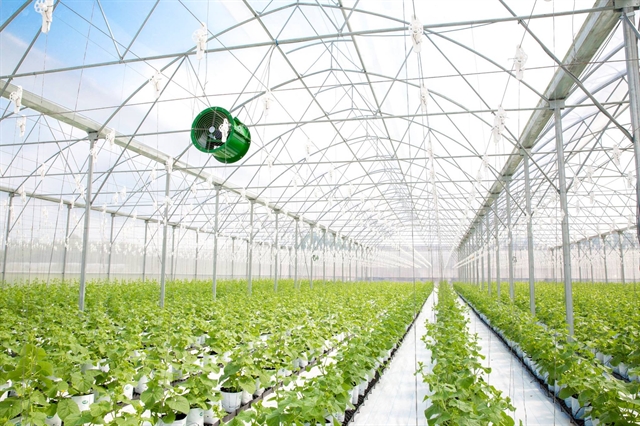
|
| Operating in the agri-food sector, the management board of PAN determined that circular economy is the model of the future. — Photo courtesy of the group |
Nowadays, not only multinational and FDI companies, some Vietnamese companies have begun to transform their business activities to the circular economy model. The PAN Group is one of the pioneers. Operating in the agri-food sector, the management board of PAN determined that circular economy is the model of the future as expressed in commitments with partners in developed countries in Europe and North America. When considering investment in member companies, one of the main criteria was the potential to promote a circular economy towards sustainable development.
As of today, although implementation levels are different, all members of the Group are strictly implementing the circular economic model to maximise resources and minimise impacts. The most notable examples are:
• Aquatex Bentre uses pangasius by-products as animal feed and to extract oil. Wastewater from the factories is treated and reused. Water in the ponds is reused according to RAS technology.
• At Sao Ta, shrimp shells and heads are acquired by partners to produce chitin and chitosan which are important materials in agriculture, food and healthcare industry.
• Lafooco’s cashew nut shell has been reused as a kiln fuel. At the same time, it is pressed to extract essential oils to use as fuels or film-forming gels in marine paints production and the production of other heat-resistant materials.
• 584 Nha Trang sells Fish sauce by-products to partners to reuse as fertiliser
• Vinaseed’s rice by-products are reused as kiln fuel. Rice bran is sold to food and alcohol brewing companies.
• At PAN Food and Bibica, confectionery by-products are reused for animal food. The product packaging has smart design so that consumers can reuse it as utensils or children’s toys.
In addition, all wastewater and exhaust gases from all factories of the Group are treated to reuse onsite or returned safely to the environment. With the strategy of reducing dependence on traditional electricity, member companies such as Vinaseed, PAN Food, Bibica have installed solar power systems at factories in high radiation areas. These systems have significantly reduced electricity costs and reduced CO2 emissions into the environment. The circular economy has brought practical benefits to our everyday lives.
Member companies of The PAN Group have found early successes in applying the circular economy model. This is also a development method with PAN’s commitment to implement UN’s sustainable development goals as a response to climate change. The circular economy supports the implementation of 10 out of 17 sustainable development goals, especially those directly related to the agricultural sector. This includes SDG2 - Eradicate extreme poverty and hunger, SDG12 - Responsible production and consumption, and SDG15 - Sustainable use of land.
As a creative pioneer in implementing sustainable strategy, PAN has been selected for five consecutive years in the Top 50 best listed companies in Việt Nam by Forbes. We are also honoured by the Business Council for Sustainable Development in the list of Top 100 sustainable enterprises in 2020. Last October, at the ITC Good Trade Summit, I was proud to share the achievements of our member companies to the world’s leading experts, organisations and businesses. I affirmed that “Sustainable development is the comprehensive strategy of The PAN Group. We believe this is the most active and proactive way to respond to unpredictable changes in the future”.
However, we still have a lot to do. The COVID-19 pandemic taught us to become adaptable and resilient through solidarity. The pandemic helped us realise the changing habits of consumers and the impacts of a circular supply chain and the need to protect the environment. These effects are the consequences of irresponsible consumption habits and the lack of cooperation. Gone are the days when businesses only focused on their own benefits. Businesses now have to be responsible to stakeholders in the supply as well as the society.
Although the circular economy brings tremendous benefits, it also has its drawbacks. We fully understand that a 100 per cent circular economy model could never exist since there will always be some loss in the system. Furthermore, not every system could be beneficial right away. For that reason, we should assess the effects of the circular economy thoroughly to make sure that the benefits outweigh the costs. However, considering circulation as the principle to create more effective practices is a good way to move forward together.
At The PAN Group, we will continue the journey to achieve these sustainable development goals. The member companies will need more cooperation to build a sustainable ecosystem to prolong the life cycle of not only the products but also the connection between the companies with each other and with consumers. The most important factor is no longer financial or technical resources but an open mind and the ability to identify new trends. Each member should have a comprehensive and long-term investment plan in human resources and technology. This is a commitment to losing short-term benefits in exchange for long-term sustainable values that are meaningful to the development of the business, the environment and the society. With a strong awareness of the circular economy, we will know what to do and use creative ways to achieve the goals. Ethical business and sustainable development are not only messages from our hearts but also from our minds.

